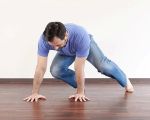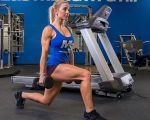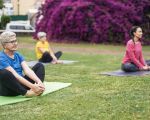
Gym Workouts for Improving Upper Body Strength Seniors: Safe and Effective
Jul 10, 2025

Effective Gym Workout Routine to Boost Endurance and Stamina
Jul 08, 2025

Effective Gym Workout for Improving Joint Mobility and Enhancing Flexibility
Jul 06, 2025

Fast Gym Workout Plan for Muscle Gain in Senior Women
Jul 03, 2025

Effective Gym Workout Routine for Building Muscle in Women Fast
Jul 02, 2025

Advanced Gym Workouts to Improve Hip Mobility for Senior Women
Jul 02, 2025

Effective Gym Workout Plan for Gaining Muscle Mass Men
Jul 01, 2025

Effective Gym Workout Plan for Beginners Weightlifting to Build Strength
Jun 30, 2025







